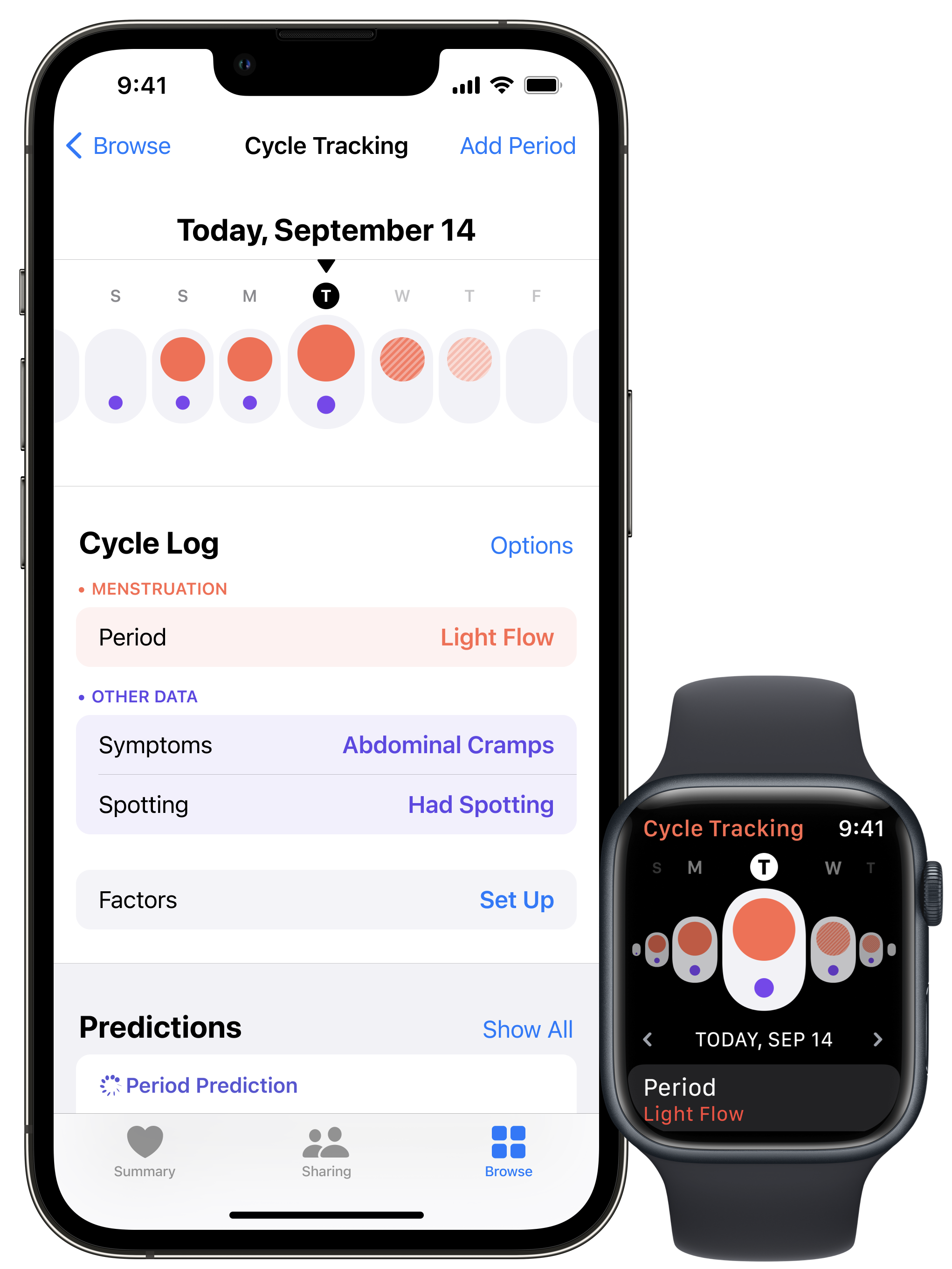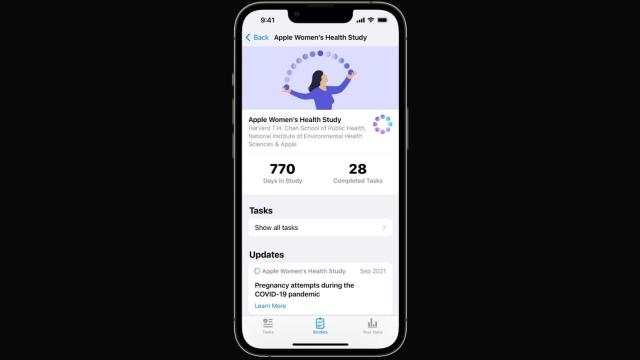A large study of women who use Apple products to track their periods might provide some insights about a common but still barely understood menstrual condition. On Monday, Harvard researchers released the latest preliminary update from their Apple Women’s Health Study. Among other things, they found that 12% of women in the study reported being diagnosed with polycystic ovary syndrome (PCOS), and that PCOS sufferers were more likely to have irregular periods and other worrying health conditions, like type 2 diabetes.
PCOS is a complex hormonal disorder. It’s characterised by higher than usual levels of testosterone and other androgen hormones, and sometimes lower levels of estrogen. This imbalance can lead to a variety of symptoms, including infertility, acne, excess body hair, and enlarged ovaries that regularly produce immature follicles, fluid-filled sacs containing eggs that can never be fertilised. (Despite the name, these follicles aren’t the same as ovarian cysts, but the conditions can have similar symptoms.)

In March 2020, researchers at the Harvard T.H. Chan School of Public Health, in collaboration with Apple, launched the Apple Women’s Health Study. The project was billed as an attempt to better quantify how menstruation affects and is connected to people’s health. Participants sign up through the Research app found on iPhones and Apple Watches. They’re then asked to fill out regular surveys about their periods and other health markers, and they can also opt to track and share the data they collect on their menstrual cycles with the study as well. The theme of the project’s second year is PCOS.
The preliminary findings are based on a cohort of 37,000 people who filled out at least one survey about their medical history through December 2021. Overall, 12% said they had been diagnosed with PCOS by a doctor, slightly higher than other estimates of how common it may be in the general population. The median age of diagnosis was 22, in line with research showing most are diagnosed in their 20s and 30s.
Following someone’s first period, it can take time for cycles to become regular. And for those with diagnosed PCOS, the study found, this wait was often even longer. Within the first four years of menstruation, about 70% of participants without PCOS achieved regular periods, but the same was only true for 43% of people with PCOS. About half of those with PCOS reported never having regular periods or only having regular periods after they went on hormonal treatment such as birth control, compared to less than a quarter of women without PCOS.
Though PCOS can often be managed well with hormonal and other treatments, little is known about how and why it happens. There is thought to be a strong genetic component, but environmental factors during pregnancy or the first years of life may play a role, too. In the study, 23% of women with PCOS reported a family history of the condition, versus only 5% of women without PCOS who said the same, which does lend support to a genetic link.
People with PCOS also seem to be predisposed to other health problems in ways we’re still trying to understand — a pattern found in this study as well. Compared to those without it, people living with PCOS were more likely to have an irregular heartbeat (5.6% vs 3.7%), type 2 diabetes (6.7% vs 2.3%), high blood pressure (17.7% vs 10.7%) and high cholesterol (19% vs 11.6%). The largest gap was found with obesity, however, as over 60% of people with PCOS were obese, nearly twice the prevalence seen in those without it.
Though other studies have found a similar link between PCOS and many of these conditions, the authors say relatively little work has been done on the connection between menstrual and heart health specifically.
“Our study is filling a research gap by diving deeper into understanding how periods and menstrual cycles can be a window into overall health. The level of research being conducted by the Apple Women’s Health Study is important for having a better understanding of PCOS and its health impacts, including for people with PCOS and those that might have PCOS, but do not know,” said co-lead investigator Shruthi Mahalingaiah, an assistant professor of environmental, reproductive, and women’s health at Harvard T.H. Chan, in a statement provided to Gizmodo.
Mahalingaiah and her colleagues plan to publish their findings to date in peer-reviewed journals, to continue recruiting more women into the study, and to keep focusing on the experiences of those with PCOS.
“Moving forward from this preliminary analysis, we hope to create a larger foundational data set on PCOS, with self-tracked variables, and its connection with heart health, which can contribute to understanding the condition, developing treatments, and inspiring new areas of research across women’s health,” said Mahalingaiah. “Our hope is that by expanding the understanding of the public health burden of PCOS, we can create research models that can be applied to further scientific understanding of other health conditions and the burden of other diseases.”
